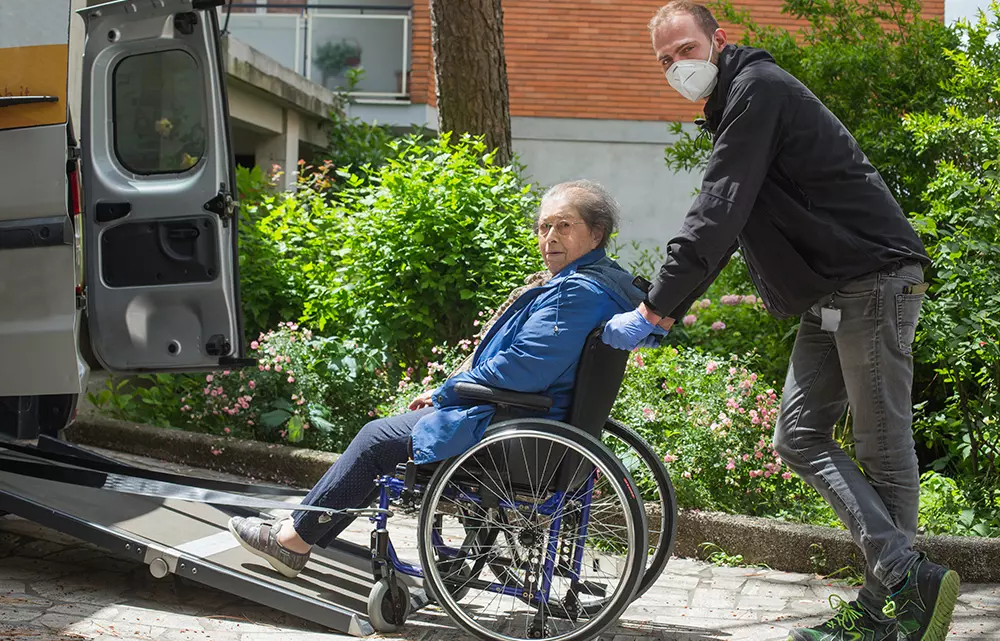Can NEMT Decrease the Load on EMS?

Patient transport became especially difficult. With emergency medical services (EMS) resources strained to breaking, some patients had to resort to non-emergency medical transport (NEMT) to get to medical facilities.
During the height of the pandemic, NEMT drivers, personnel, and patients themselves had to follow strict guidelines to ensure they were not infected before they could take action. These additional requirements significantly slowed down transport services in many areas, and as a result, many patients experienced delays in their treatment or lost access entirely.
Now that the world is slowly shifting back to pre-pandemic norms, many still see the benefits of calling in NEMT services for their needs. But can NEMT providers decrease the increasing demand on EMS systems?
Contents:
- The Traditional EMS Model
- NEMT and Other Possible Alternatives
- NEMT: Can It Help EMS?
- NEMT Cannot Replace EMS
- Final Thoughts
The Traditional EMS Model
The traditional emergency medical services (EMS) model involves the collaboration of multiple agencies to respond to all local medical emergencies. Medical, fire, and police personnel work together to respond to emergency calls, each with dedicated roles when they arrive at the scene.
Unfortunately, many local EMS systems are struggling to keep up with demand, as they must respond to dozens of calls a day.
EMS is dispatched once an emergency call comes in, and they collaborate with local hospitals and medical facilities that can provide the best treatment for the patient. All hospitals are expected to accommodate emergency cases, but for many, the volume of patients is increasing so much that they may not always have the capacity to respond.
This demand only increased during the pandemic, which strained hospitals, EMS systems, and funeral services.
Additionally, the war in Ukraine has limited the movement of medical and manufacturing supplies into the global market and increased the price of gas worldwide. As a result, many transport systems have become severely limited in the services they provide.
NEMT and Other Possible Alternatives

The medical industry is exploring different protocols to augment the traditional EMS model. Various communication and transportation solutions should help the system deliver the right response at the right time.
These options include calling in non-emergency medical transport (NEMT) providers in cases where patients can receive the appropriate care they need in an urgent care clinic, a mental health clinic, or even a freestanding emergency department.
In one study, 68.2% of patients were willing to explore alternative transport modes in emergency cases. These included public transport such as taxis and NEMTs. Over 60% were more willing to accept NEMT transport that directly took them to an urgent care center or their physician’s clinic. Researchers noted that further study was needed to determine if such options were acceptable for other emergency cases.
One issue with public transport is that there is no access to medical equipment that might be useful to someone in an emergency. NEMT vehicles, on the other hand, have medical equipment and trained personnel that could help mitigate patient symptoms while in transit to a medical facility.
NEMT: Can It Help EMS?
NEMT services as a potential option for non-emergent cases can ease the burden on EMS providers, especially for patients in rural areas who might not have many options in the event of an emergency.
Though most NEMT services are scheduled in advance, some are trying to find ways to provide medical transport to clients who contact them during an emergency. This can significantly improve the immediate treatment patients receive and ease the burden on EMS in the community.
NEMT can provide transport to people that EMS systems may not reach, giving patients more transport options when they need emergency treatment. For efficient operations, NEMT providers can leverage all-in-one software such as RouteGenie to improve scheduling and patient profiling to provide medical transport needs and improve patients’ chances when they arrive at a medical facility.
Non-emergent clients do not have to go through the hassle of public transport; instead, they can be given more attention and care when they hire NEMT services for their medical appointments. NEMT providers are trained healthcare workers that can provide treatment if there is an emergency in their vehicle.
NEMT Cannot Replace EMS

But, in the end, NEMT providers can’t replace EMS systems. They are fantastic options for non-emergent cases, but they cannot deliver all the services an EMS system provides.
The medical industry recognizes the need to improve the traditional model. Many medical facilities are building their own emergency medical services programs intending to provide alternative responses to emergency calls, dispatches, and transport, especially post-pandemic.
NEMT providers can significantly augment emergency services, so localities should consider giving them a place in the EMS system. NEMT vehicles can be on standby and be called on to respond to cases where they are a viable option for non-emergent patients.
Giving NEMT providers the space to help improve healthcare services can positively affect patients. However, specific guidelines must be established to determine the situations they could act as emergency transport and what kind of patients could benefit from their services.
NEMT providers have proven they could give patients access to the primary healthcare they need. Their roles can be expanded further to ensure the health and well-being of everyone in the community.
Final Thoughts
Everyone deserves the best healthcare, but sadly, very few people have access to it for various reasons. Local governments and communities are trying their best to provide the medical care that people need, especially given the strain of a global pandemic.
NEMT services might not be the perfect answer to the increasing demand on EMS systems, but they can help provide medical treatment to whoever needs it. Especially NEMT becomes effective with the advanced NEMT software that help to improve routes and can meet demand on urgent trips. Schedule a call with our team to see how RouteGenie can help you today!
About the author
An experienced content writer, Keren Dinkin’s forte is writing well-informed medical transportation, healthcare accounting, and related articles. Her work is backed by months of intensive research and pays meticulous attention to details. In addition to being a writer, she also dons the hat of a content strategist.
The author assumes no responsibility or liability for any errors or omissions in the content of this site. The information contained in this site is provided on an "as is" basis with no guarantees of completeness, accuracy, usefulness or timeliness.